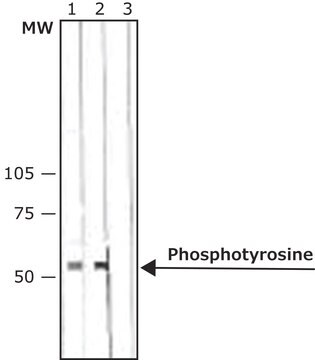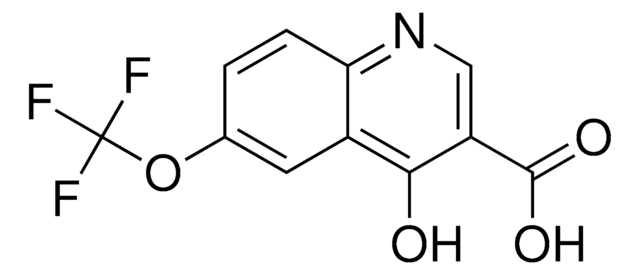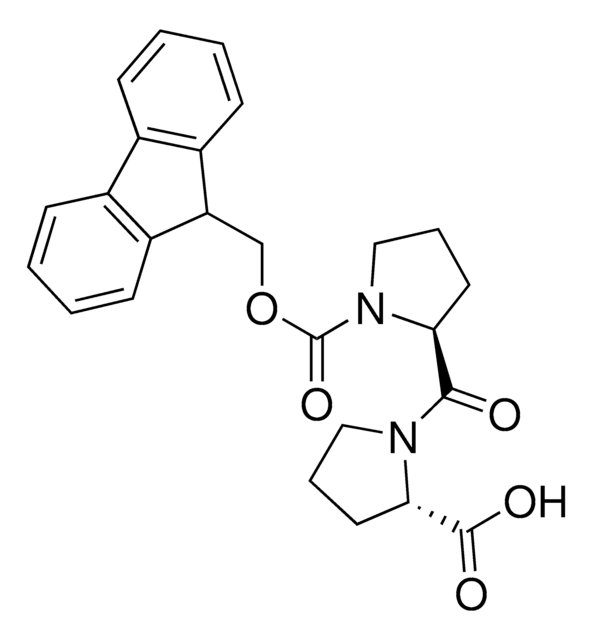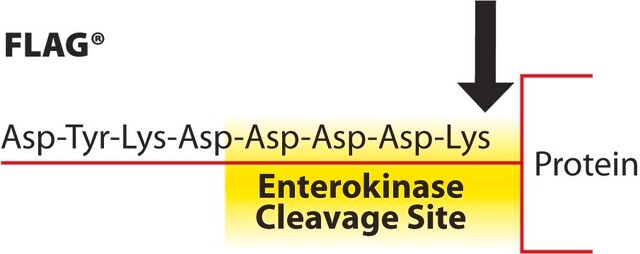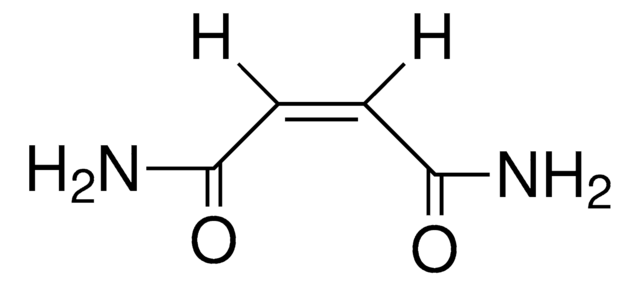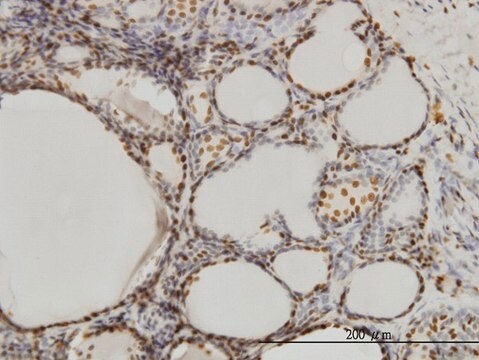P2860
Monoclonal Anti-PSF antibody produced in mouse
clone B92, purified from hybridoma cell culture
Synonyme(s) :
Mouse Anti-Polypyrimidine tract-binding protein-associated splicing factor
About This Item
Produits recommandés
Source biologique
mouse
Niveau de qualité
Conjugué
unconjugated
Forme d'anticorps
purified immunoglobulin
Type de produit anticorps
primary antibodies
Clone
B92, monoclonal
Forme
buffered aqueous solution
Espèces réactives
mouse, human
Conditionnement
antibody small pack of 25 μL
Concentration
~2 mg/mL
Technique(s)
immunocytochemistry: suitable
immunohistochemistry (frozen sections): suitable
immunoprecipitation (IP): suitable
microarray: suitable
radioimmunoassay: suitable using cells
western blot: 2-4 μg/mL using whole extract of cultured HeLa cells
Isotype
IgG1
Température de stockage
−20°C
Modification post-traductionnelle de la cible
unmodified
Informations sur le gène
human ... TAP1(6890)
Catégories apparentées
Description générale
Immunogène
Application
Immunofluorescence (1 paper)
Immunohistochemistry (1 paper)
Immunoprecipitation (1 paper)
- immunofluorescence
- immunohistochemistry
- immunoprecipitation
Actions biochimiques/physiologiques
Forme physique
Notes préparatoires
Clause de non-responsabilité
Vous ne trouvez pas le bon produit ?
Essayez notre Outil de sélection de produits.
Code de la classe de stockage
12 - Non Combustible Liquids
Classe de danger pour l'eau (WGK)
nwg
Point d'éclair (°F)
Not applicable
Point d'éclair (°C)
Not applicable
Certificats d'analyse (COA)
Recherchez un Certificats d'analyse (COA) en saisissant le numéro de lot du produit. Les numéros de lot figurent sur l'étiquette du produit après les mots "Lot" ou "Batch".
Déjà en possession de ce produit ?
Retrouvez la documentation relative aux produits que vous avez récemment achetés dans la Bibliothèque de documents.
Notre équipe de scientifiques dispose d'une expérience dans tous les secteurs de la recherche, notamment en sciences de la vie, science des matériaux, synthèse chimique, chromatographie, analyse et dans de nombreux autres domaines..
Contacter notre Service technique